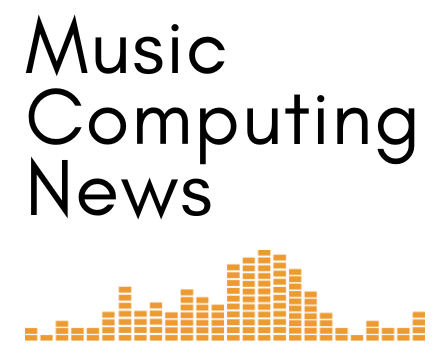In a night filled with controversy and protests, Switzerland emerged as the winner of the Eurovision Song Contest. The nonbinary singer, Nemo, captivated the audience with their catchy track “The Code,” delivering a powerful performance while balancing on a spinning disc. This victory marks Switzerland’s first win in Eurovision since Celine Dion in 1988, and Nemo’s triumph comes amidst months of protests over Israel’s involvement in the competition. Despite the tensions leading up to the final, the event showcased the usual high-camp spectacle, with singers emoting about lost loves and near-naked dancers. Nemo’s victory serves as a celebration of their journey to self-discovery and identity, overshadowing the protests that had dominated the headlines.
Switzerland Wins Eurovision with Nonbinary Singer Nemo
Overview of Eurovision Song Contest final in Malmo, Sweden
The Eurovision Song Contest final took place in Malmo, Sweden, and lasted for four hours. The event was known for its high-camp spectacle, featuring extravagant performances, near-naked dancers, and artistic expressions of love and loss. The final showcased the diversity of participating countries, with performers from all over Europe and even non-European countries like Australia.
Tension and protests over Israel’s involvement in the competition
In the lead-up to the Eurovision Song Contest final, there were months of protests over Israel’s participation in the competition. Pro-Palestinian groups and Eurovision fans called for Israel to be banned from participating due to their actions in Gaza. Demonstrations and clashes between the police and pro-Palestinian demonstrators occurred outside the arena during the event. The European Broadcasting Union, the organizers of Eurovision, dismissed these calls, emphasizing that the competition is based on the performances and not countries’ political actions.

Nonbinary singer Nemo wins with song “The Code”
Switzerland’s representative, Nemo, emerged as the winner of the Eurovision Song Contest with their song “The Code”. Nemo, who identifies as nonbinary and uses they/them pronouns, performed a captivating mix of rap and operatic singing that expressed their journey to self-discovery and acceptance. The lyrics of “The Code” touched on themes of personal growth and finding one’s identity. Nemo’s win marked a significant moment for nonbinary representation in the music industry and Eurovision.
Background information about Nemo
Nemo, whose real name is Nemo Mettler, became Switzerland’s first Eurovision winner since Celine Dion in 1988. Nemo’s victory holds historical significance as they represent the LGBTQ+ community and bring attention to the importance of inclusivity and representation in the music industry. This achievement is reminiscent of Celine Dion’s win in 1988, showcasing Switzerland’s ability to produce exceptional artists.

Nemo’s performance during the competition
Nemo’s stage performance during the Eurovision Song Contest final was visually captivating. They balanced on a huge spinning disc while delivering their powerful vocals. The performance incorporated various props and visual elements that added depth and emotion to their song. The audience reacted positively to Nemo’s performance, applauding their unique talent and artistry.
Reactions to Nemo’s win
Nemo’s victory was met with celebration and support from their fans. The nonbinary singer’s win was recognized as a significant milestone for the LGBTQ+ community, as it showcased the progress being made in promoting inclusivity and diversity in the music industry. Nemo’s talent and artistry were acknowledged by both the music industry juries and viewers, who awarded them a substantial number of points.

Comparison to Celine Dion’s win in 1988
Nemo’s win drew comparisons to Celine Dion’s victory in the Eurovision Song Contest in 1988. Both artists represented Switzerland and left a lasting impact on the competition. While there are similarities between Nemo and Celine Dion’s victories, such as their representation of Switzerland and their exceptional vocal abilities, Nemo’s win also holds significance as a breakthrough for nonbinary representation and inclusion in the music industry.
Points awarded to Nemo by music industry juries and viewers
Nemo received strong support from both the music industry juries and viewers during the Eurovision Song Contest final. They secured a total of 591 points, making them the clear winner of the competition. Their exceptional performance and meaningful song resonated with both the professional music industry judges and the audience at home. In comparison, the runner-up act, Baby Lasagna representing Croatia, received 547 points.
Runner-up act Baby Lasagna representing Croatia
Baby Lasagna, a rock act representing Croatia, emerged as the runner-up in the Eurovision Song Contest. Their energetic performance and unique style captivated the audience and earned them a considerable number of points. While they did not secure the top spot, Baby Lasagna’s performance was highly regarded and showcased their talent and creativity.
Controversy surrounding Israel’s participation
The involvement of Israel in the Eurovision Song Contest sparked controversy and protests. Pro-Palestinian groups and Eurovision fans called for Israel to be banned from participating due to their actions in Gaza. However, the European Broadcasting Union, the organizers of Eurovision, maintained that the competition is focused on the performances of the artists rather than the political actions of the participating countries. The controversy surrounding Israel’s participation highlighted the ongoing challenges faced by cultural organizations in navigating activism and politics on their stages.






